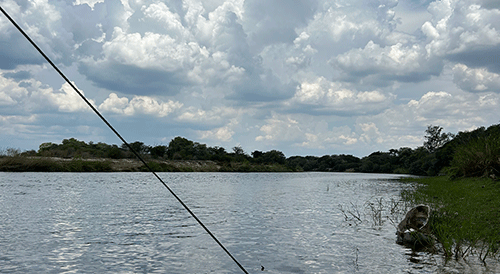KATIMA MULILO – Kabbe South and North constituencies have received substantial rainfall since the onset of the rainy season, bringing both benefits and challenges to the region.
Speaking to New Era this week, Kabbe South councillor John Likando expressed optimism about the positive effects of the rains.
He highlighted the difficulties caused by the region’s underdeveloped road network.
“All I can say is it’s good for the farmers and bad for motorists, especially service providers. The constituency is still least-developed in terms of roads networks between schools, clinics and other government sectors,” he said.
He stated that the rainy season often leads to serious flash floods in the constituency.
On the positive side, the floods bring natural resources closer to residents.
“Seasonal floods bring fish and natural vegetables, and improve grazing areas drastically. Crops also receive water with high nitrogen content, which is good for growth,” he remarked.
However, the same floods present significant challenges.
“Road linkage becomes bad for road users due to the nature of the terrain. Rising water levels spill into main streams, cutting road linkages, and making accessibility difficult,” he said.
Despite the challenges, local farmers are already reaping the benefits of the rains.
“In the floodplains, we start planting in September. This time, some are ready to harvest soon, especially maize,” he noted.
In preparation for the annual floods, the regional and constituency leadership has begun taking proactive measures.
Likando revealed that river transport has been decentralised to the Zambezi Regional Council, which will streamline emergency response efforts.
The councillor assured residents that plans are underway to mitigate the impact of the floods.
This is to ensure safety and accessibility, while maximising the opportunities provided by the rainy season.
Kabbe North Councillor Bernhard Sisamu has encouraged farmers in the constituency to remain steadfast in their efforts to plough their fields.
He urged them to ensure food production, despite the lingering effects of drought, and the late onset of rains this year.
“We are coming from a drought period. Many farmers are ploughing their fields, but some are saying they are behind, and won’t plough. Others are saying their oxen are too lean to plough,” he said.
He stressed the importance of adapting to climate change, noting how rainfall patterns have shifted over the years.
“Due to climate change, we now receive rain in January – and not in November as we are used to. So, farmers must plough and assist the government in ensuring food security,” he urged.
He praised farmers in flood-prone areas who planted early in August.
“People in the flood-prone areas who ploughed in August are ready to harvest because their water table is closer, compared to other areas. Most of their crops are flourishing. I encourage our millers to look up to these farmers in the flood-prone areas, and procure maize. They have a good harvest,” Sisamu stated.
He acknowledged the challenges posed by heavy rains to access certain areas of the constituency.
“In my constituency, there are a few places where roads are not accessible. I expect that if it continues to rain heavily, then driving will be a problem around Namihundu. At the moment, small cars cannot reach the area – only 4×4 vehicles,” he noted.
Sisamu urged farmers to stay committed to farming.
He highlighted the critical role they play in combating food insecurity during challenging times.
-anakale@nepc.com.na



